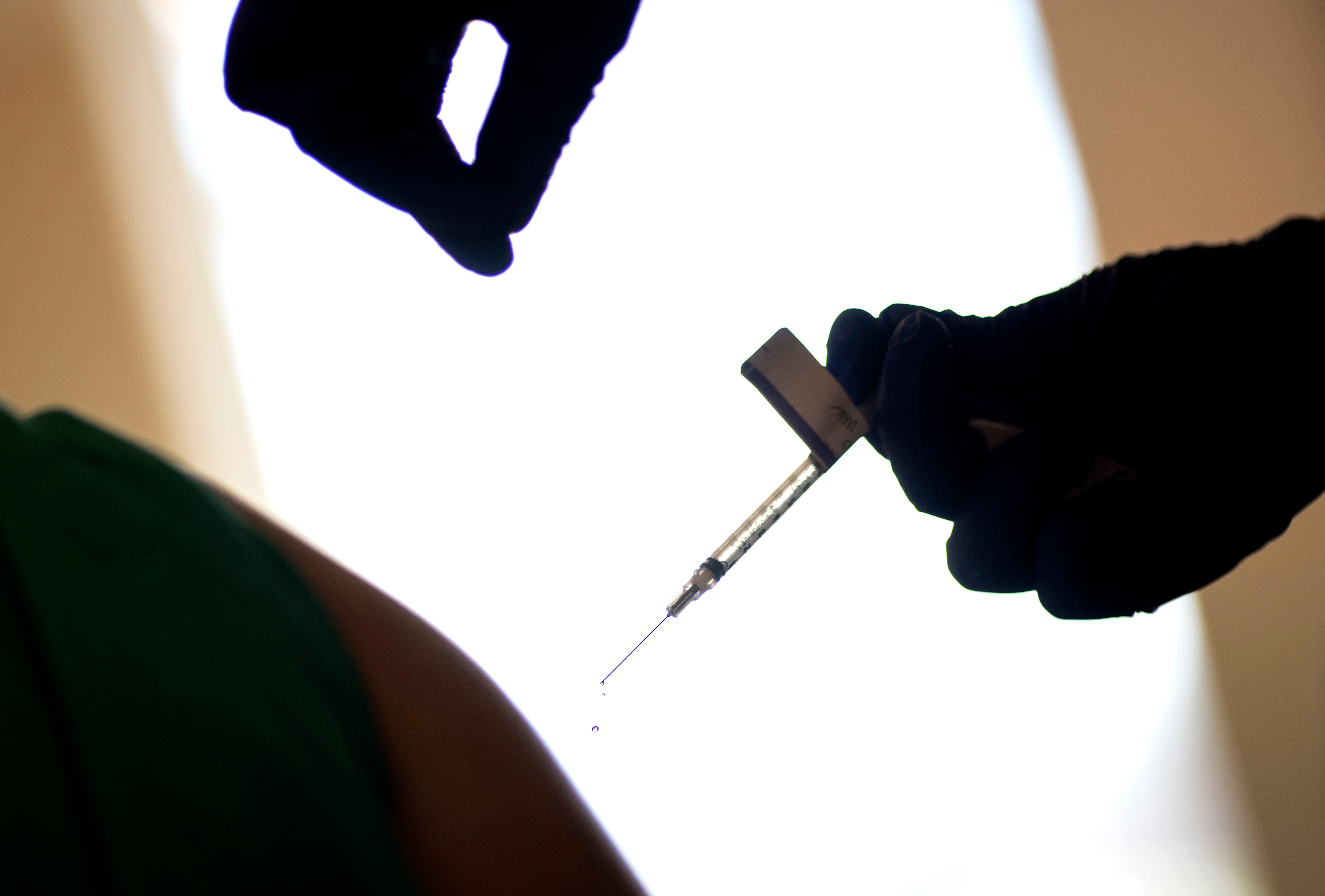Vaccinations reach nursing homes, as California faces crisis
The first COVID-19 vaccinations are underway at U.S. nursing homes, where the virus has killed upwards of 110,000 people, even as the nation struggles to contain a surge so alarming that California is dispensing thousands of body bags and lining up refrigerated morgue trailers

Your support helps us to tell the story
From reproductive rights to climate change to Big Tech, The Independent is on the ground when the story is developing. Whether it's investigating the financials of Elon Musk's pro-Trump PAC or producing our latest documentary, 'The A Word', which shines a light on the American women fighting for reproductive rights, we know how important it is to parse out the facts from the messaging.
At such a critical moment in US history, we need reporters on the ground. Your donation allows us to keep sending journalists to speak to both sides of the story.
The Independent is trusted by Americans across the entire political spectrum. And unlike many other quality news outlets, we choose not to lock Americans out of our reporting and analysis with paywalls. We believe quality journalism should be available to everyone, paid for by those who can afford it.
Your support makes all the difference.The first COVID-19 vaccinations are underway at U.S. nursing homes where the virus has killed upwards of 110,000 people, even as the nation struggles to contain a surge so alarming that California is dispensing thousands of body bags and lining up refrigerated morgue trailers.
With the rollout of shots picking up speed Wednesday, lawmakers in Washington closed in on a long-stalled coronavirus relief package that would send direct payments of perhaps $600 to most Americans. Meanwhile, the U.S. appeared to be days away from adding a second vaccine to its arsenal.
At the same time, a major snowstorm pushing its way into the Northeast raised fears it could disrupt distribution of the first vaccine.
Nursing home residents in Florida began receiving shots Wednesday, after nearly 2,000 such vaccinations were administered in West Virginia on Tuesday. Thousands more are scheduled there in the coming days. Other states are expected to follow soon.
The elderly and infirm in long-term care have been among the most vulnerable to the virus and, together with health workers, are first in line to get the limited, initial supplies of the Pfizer shot. Nursing home residents and workers account for more than one-third of the nation's 300,000 or so confirmed deaths from COVID-19.
In Florida, whose 141,000 nursing home residents are the second most of any state behind California, eagerness to get the vaccine was mixed with some anxiety.
“I hope it will help me from getting COVID,” said 88-year-old retired schoolteacher Vera Leip, a resident of John Knox Village near Fort Lauderdale. “I don’t know anything about it, but I would prefer not to have it.”
The home is not requiring its employees to get the vaccine, and only 80 of the 200 staffers in the skilled nursing facility volunteered for the first wave, said Mark Rayner, its director of health services. He said many of those declining the shot are African-American and don’t trust it, given the nation's history of medical experimentation on Black people.
“They are frightened,” he said. “There is that culture line even as much as we educate them.”
West Virginia, with one of the oldest and unhealthiest populations in America, is working with small and local pharmacies to reach nursing homes across the heavily rural state, leapfrogging most states that are relying on a partnership with CVS and Walgreens to kick in any day now.
Marty Wright, head of the West Virginia Health Care Association, which represents nursing homes and assisted living communities, said pharmacies expect to get 7,000 doses into arms by the end of the week.
The developments come as as the crisis grows increasingly dire by many measures.
The U.S. recorded over 3,000 deaths on Tuesday for the third time in less than a week, eclipsing the peaks seen last spring. New cases are running at over 212,000 a day on average. And the number of Americans in the hospital with COVID-19 hit another all-time high Tuesday of about 113,000.
California is distributing 5,000 body bags mostly to the hard-hit Los Angeles and San Diego areas and has 60 refrigerated trailers standing by as makeshift morgues in anticipation of a surge of deaths. The state is averaging 163 virus deaths per day, up from 63 just two weeks ago.
With new cases of the infection in California averaging more than 32,000 a day, hospitals in parts of the state are running out of space in intensive care wards.
In Fresno County, officials said Tuesday that just 16 ICU beds remained available and were filling rapidly. To keep up, the county’s hospital system has contracted with a Virginia company to supply doctors, nurses and others to staff a temporary 50-bed facility that will start receiving patients by the end of the week.
“Unfortunately, I’m anticipating a grim set of weeks before and after the New Year, just given the trends that we’re seeing with the number of cases,” said Dr. Rais Vohra, the county’s interim public health officer.
In Orange County, health officials planned to send large tents to four hospitals to help accommodate patients.
In Washington, congressional leaders said they hoped to seal a deal as early as Wednesday on a package that would extend aid to individuals and businesses and help ship vaccines to millions. It would include enhanced federal unemployment benefits and stimulus checks.
On Thursday, a government advisory panel will consider whether to endorse emergency use of a second vaccine, made by Moderna.
___
Associated Press writers Cuneyt Dil in Charleston, West Virginia, Olga R. Rodriguez in Fresno, California, and Andrew Taylor in Washington contributed to this story.